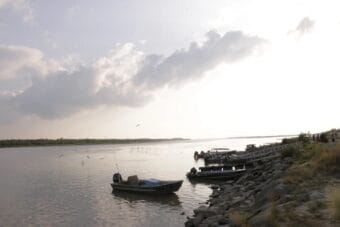The Alaska Supreme Court has upheld the conviction of a Metlakatla fisherman who was fined for fishing without the proper permits. The case is part of a long-running dispute over tribal sovereignty.
In 2014, U.S. Coast Guard officers reported a Metlakatla tribal member fishing in a closed area without a state commercial fishing permit. When they boarded the boat they found a few dozen coho salmon, which the skipper reportedly said he intended to sell. Metlakatla resident John Scudero Jr. was cited for three commercial fishing violations and fined $20,000 after a one-day trial the following year.
He appealed the case. Metlakatla’s elected tribal government has long objected to state fishing regulations, arguing that its status as the state’s only Indian reservation gives it federally guaranteed rights. The tribe filed a brief in support, arguing enrolled tribal citizens fishing outside the reservation’s boundaries were not under the state’s jurisdiction
The argument goes like this: Attorneys argue the 1891 law creating the reserve intended to create a self-sustaining community. And an essential part of the community’s ability to sustain itself is through fishing — both within a 3,000-foot exclusive zone around the reserve and outside of that boundary. And since federal law trumps state law, Scudero’s attorneys argued Alaska’s fishing regulations infringed upon the tribe’s sovereign rights set out by Congress.
But the Alaska Supreme Court disagreed in a 4-0 decision. Writing for the court, Justice Peter Maassen declined to rule on whether Metlakatla tribal members held a federally guaranteed right to fish outside the 3,000-foot boundary. But Maasen cited a raft of U.S. Supreme Court cases that held tribes’ off-reservation hunting and fishing rights were subject to state regulations aimed at conserving fish and wildlife populations. Three other Supreme Court justices joined Maasen’s opinion. The remaining justice, Dario Borghesan, did not participate in the case.
It’s not the first time Metlakatla Indian Community has asked a judge to rule on the question of off-reservation fishing rights. The tribe sued Gov. Mike Dunleavy’s administration in federal court last year on similar grounds. A federal district judge dismissed the case; it’s now pending in the Ninth Circuit Court of Appeals.



